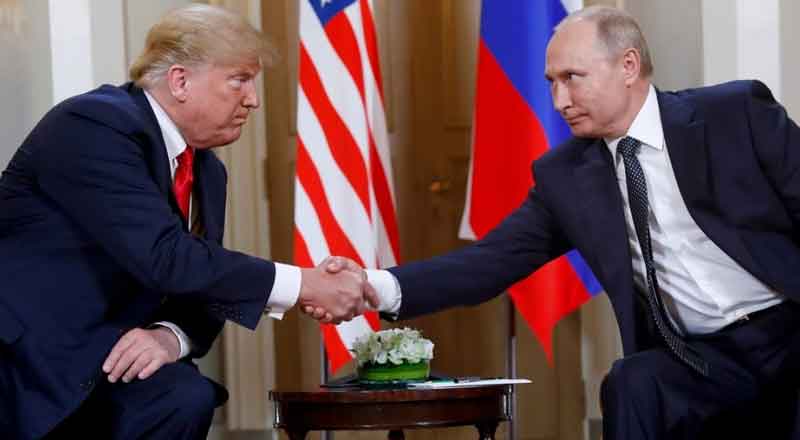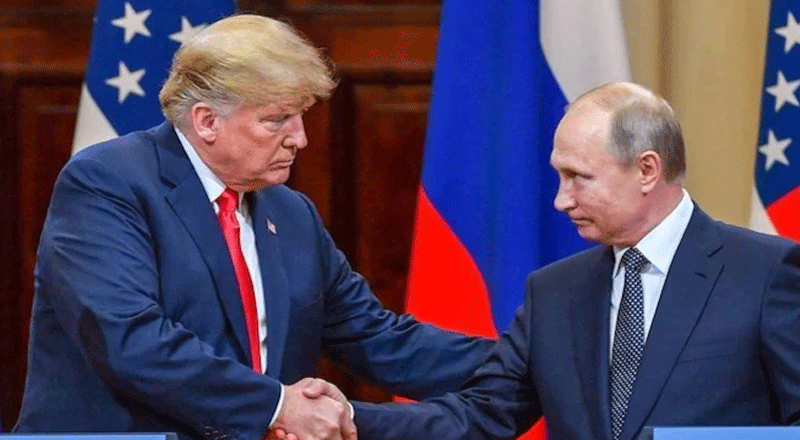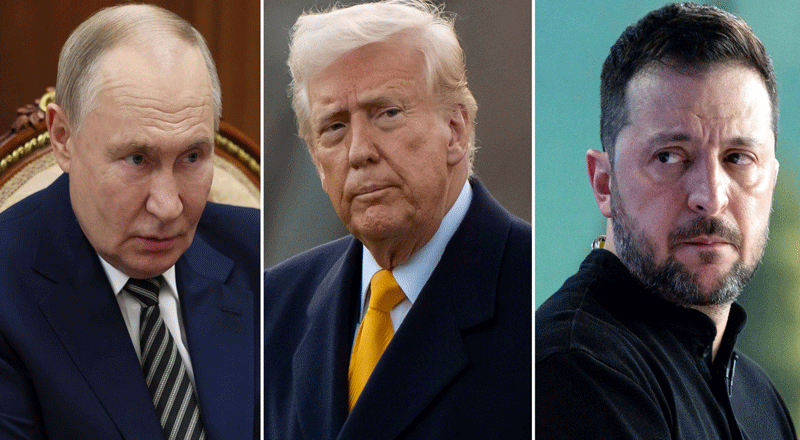In a notable departure from previous harsh rhetoric, Russian President Vladimir Putin has praised former US President Donald Trump, calling him an “intelligent and experienced” leader capable of resolving global tensions, particularly regarding the ongoing war in Ukraine. These comments come at a time when relations between Russia and the West, especially the United States, have reached new lows, fueled by Russia’s aggressive actions in Ukraine and the West’s response. Putin’s praise of Trump stands in stark contrast to his recent criticisms of President Joe Biden, who has authorized further military support for Ukraine.
Praise for Trump: A Sharp Contrast
Speaking at a press conference in Kazakhstan on November 28, Putin expressed his admiration for Trump, suggesting that the former president has the necessary skills to handle the complex situation between Russia and the West. “The newly elected president is an intelligent and already quite experienced person,” Putin said, adding, “I think he will find a solution.” This positive assessment marks a significant contrast from Putin’s past condemnations of Trump’s political rivals and comes amid escalating tensions over Ukraine.
In contrast, Putin had recently criticized President Biden’s actions, particularly the authorization of the US-made Army Tactical Missile System (ATACMS) for use in Ukraine. These missiles are capable of hitting targets inside Russian territory, a move that has raised alarms in Moscow. Putin framed Biden’s decision as one that created “additional difficulties” for any future US administration, hinting that relations between Moscow and Washington could worsen under Biden’s leadership.
The Nuclear Threat and Growing Tensions
The timing of Putin’s comments is also significant, as he made new threats of further military escalation against Ukraine. He warned that Russia could use its nuclear-capable ballistic missile, known as “Oreshnik,” against Ukrainian military sites and decision-making centers, including Kyiv. This move follows a series of attacks on Ukraine’s energy infrastructure, which has left millions without power. Putin’s comments reflect an increasingly aggressive posture as the war drags on, with no clear end in sight.
The situation remains tense, with Putin continuing to accuse the West of escalating the conflict. He warned that further NATO involvement in Ukraine, particularly the use of long-range missiles, would significantly alter the nature of the war, potentially leading to direct conflict between NATO and Russia.
Trump and Biden: Diverging Approaches
Putin’s favourable comments about Trump contrast sharply with the Russian president’s disdain for Biden. Under Biden, US policy towards Russia has been firmly supportive of Ukraine, with military aid, sanctions, and diplomatic pressure. Biden’s authorization of long-range missile systems for Ukraine has only intensified the rift between the two nations.
Trump, on the other hand, has often been more ambiguous regarding his stance on the war in Ukraine, refusing to outright commit to whether he supports Ukraine’s victory. His rhetoric has been less confrontational towards Russia, and during his campaign, he suggested that his approach would focus on “peace through strength.” Trump’s nomination of Gen. Keith Kellogg as special envoy to Ukraine and Russia signals his intention to play a role in mediating the conflict, should he return to office.
Putin’s recent praise of Trump, coupled with his criticisms of Biden, highlights the stark contrast in the two leaders’ approach to global security and diplomacy. As the war in Ukraine continues to escalate, the relationship between the US and Russia remains a pivotal factor in shaping the future of the conflict. While Putin seems to believe that a solution could be found under Trump’s leadership, the tension between his administration and Biden’s shows no signs of abating. The coming months will likely reveal whether Putin’s optimism about Trump proves accurate, or if Biden’s more confrontational stance will lead to further deterioration in US-Russia relations.
(With inputs from agencies)





